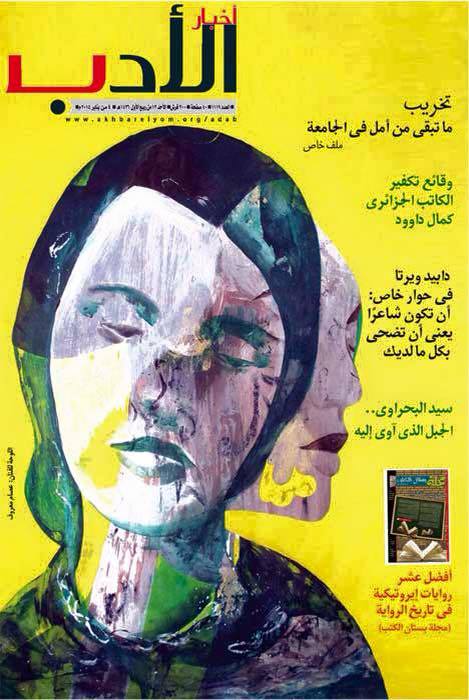CAIRO, Dec. 12 (Aswat Masriya) - Egyptian writer and journalist Ahmed Naje was brought to court Saturday, where he faces trial for publishing "obscene sexual content" in a literary weekly as many on social media expressed solidarity with the writer.
Prominent writers Mohamed Salmawy and Sonallah Ibrahim attended the hearing, Naje said on Twitter.
The Association for Freedom of Thought and Expression said in the hearing prosecutors questioned if the "description of genitals" can be considered creativity, saying "porn films are more creative."
Naje has sent out a message on Twitter expressing astonishment that two prosecutors are arguing the case when tpically only one prosecutor is assigned per case.
This is Naje's second appearance in court at a trial that has galvanized social media expressing solidarity with public speaker Mona Eltahawy and columnist Sultan AlQassemi joining the voices condemning the trial.
Naje's crime was publishing a chapter from his novel "Use of Life" in August 2014. The chapter was published in a literary magazine belonging to the stat exam-owned Akhbar Al-Youm.
Set in Cairo, the novel tells the story of Bassam, a man lost inside a "spiderweb of emotional frustration and failure." Oscillating between the present, the past and the future, it explicitly describes sexual acts.
He authored the novel but in an innovative twist, he also resorted to a cartoonist to illustrate some parts of the narrative.
After he learned of the trial, Naje told Aswat Masriya on Nov. 1, that this is proof that creativity in Egypt is in "crisis".
Prosecutors said Naje published "written material containing lust," adding that he let his mind and pen be used for "malicious" purposes in "violation of the sanctity of public morals" and leading to temptation.
The trial also includes the editor-in-chief of the publication.
The chief editor Tarek al-Taher told prosecutors during questioning that he only reviewed the title of the story, without reviewing the whole text, adding that he would not have published it had he read it. He failed to meet his duty of "supervising the story," prosecutors said.
The trial was postponed to Jan. 2, when the verdict will be issued.
Freedom of the press and freedom of expression in Egypt have long been under scrutiny, both by local and international watchdogs.
Last week, novelist Alaa Al Aswany's monthly seminar in Alexandria was cancelled he said in a short statement on his official Facebook page.
He said it was cancelled after security forces objected to the topic of the seminar which was titled "the conspiracy theory, between reality and illusions."
In an article on the cancellation of Aswany's seminar, The Guardian said, "the cancellation comes as the space for speech that doesn’t fit [President Abdel Fattah al]-Sisi’s narrative has narrowed."
There have also been a string of cases in the past two months where journalists have been detained and questioned by Egyptian authorities, the latest being journalist Ismail Alexandrani who faces charges of joining an illegal group, spreading rumors and disturbing public peace.
Despite a census in June that said that at least 18 journalists are behind bars in Egypt because of their work, top Egyptian officials have repeatedly denied that journalists in the country are being targeted because of their work.
In August, President Abdel Fattah al-Sisi denied that any journalists are detained in cases related to publishing or press freedom.











